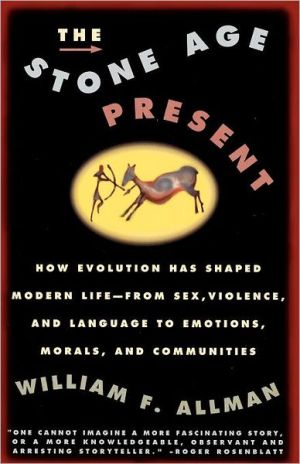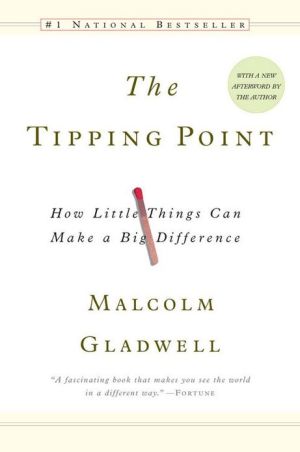The Stone Age Present: How Evolution Has Shaped Modern Life -- From Sex, Violence and Language to Emotions, Morals and Communities
Have you ever wandered why men don't ask for directions? Why we react with anger to infidelity? Why we love music and art? Why war and racism still thrive in our most sophisticated cultures?\ In this fascinating synthesis of the disciplines of anthropology, psychology, linguistics, philosophy, and biology, William Allman shows us how our minds have evolved in response to challenges faced by our prehistoric ancestors, and reveals how our brains continue to harbor that legacy in the present...
Search in google:
Have you ever wandered why men don't ask for directions? Why we react with anger to infidelity? Why we love music and art? Why war and racism still thrive in our most sophisticated cultures?In this fascinating synthesis of the disciplines of anthropology, psychology, linguistics, philosophy, and biology, William Allman shows us how our minds have evolved in response to challenges faced by our prehistoric ancestors, and reveals how our brains continue to harbor that legacy in the present day.Scientists speculate that many of the problems of modern life -- from obesity to war -- arise because our "Stone Age mind" hasn't caught up with our technologically sophisticated world. But Allman also reveals how morality, rather than being the result of arbitrary convention, is deeply rooted in our need to cooperate, which has been essential to the survival of our species through its evolution. Publishers Weekly Modern human psychology and behavior has roots in the lives of our Stone Age ancestors, asserts Allman in this lucid and provocative survey of the emerging field of ``evolutionary psychology.'' In his view, our species' primary adaptation was not hunting, toolmaking or language but the ability to cooperate; the dangers and payoffs of dealing with the most treacherous, dangerous animal in the world-- each other --triggered the brain's evolutionary growth. A senior science writer for U.S. News & World Report , Allman draws plausible connections between ancient humans' social cooperation and contemporary behavior such as anger at a mate's infidelity, how men and women choose a partner, our appreciation of music and art, food preferences and much more. He also identifies a downside to our putatitve Stone Age legacy--modern group insularity, racism, rabid nationalism and our difficulty in adjusting to a unifying technological society. (Sept.)
Preface13Introduction: Stone Age Mind171Storming the Citadel252The Social Brain523Nice Guys Finish First714What's Good About Feeling Bad?935The Evolution of Love1086The Beast Within1377Giving the Mind a Voice1588The Creative Explosion1869The Modern Experiment220Epilogue: Us Versus Them245Notes255Bibliography265Index271
\ Publishers Weekly - Publisher's Weekly\ Modern human psychology and behavior has roots in the lives of our Stone Age ancestors, asserts Allman in this lucid and provocative survey of the emerging field of ``evolutionary psychology.'' In his view, our species' primary adaptation was not hunting, toolmaking or language but the ability to cooperate; the dangers and payoffs of dealing with the most treacherous, dangerous animal in the world-- each other --triggered the brain's evolutionary growth. A senior science writer for U.S. News & World Report , Allman draws plausible connections between ancient humans' social cooperation and contemporary behavior such as anger at a mate's infidelity, how men and women choose a partner, our appreciation of music and art, food preferences and much more. He also identifies a downside to our putatitve Stone Age legacy--modern group insularity, racism, rabid nationalism and our difficulty in adjusting to a unifying technological society. (Sept.)\ \ \ \ \ Library JournalThe subtitle of this book says it all: evolution has shaped the human mind and thus modern human behavior in complex ways. U.S. News & World Report senior writer Allman argues that trying to understand these ways through the lens of the nature vs. nurture controversy is unproductive, since evolution and culture have worked together rather than separately to form the human mind. He argues that the brain is not a general thinking machine but an organ developed for specific purposes, producing specific behavior patterns. His arguments draw on the research of "evolutionary psychology," which shows that the human mind has been fashioned over time specifically for cooperative and social behavior. Moreover, that research reveals that cooperation is the hallmark of our evolutionary history and that cooperative behavior is "hard-wired" into our brains. Allman applies these concepts to human behavior, relationships, language, and culture. An optimistic and provocative book that will inform the general public and enlighten students of anthropology and psychology.-Joyce L. Ogburn, Yale Univ. Lib., New Haven, Ct.\ \








